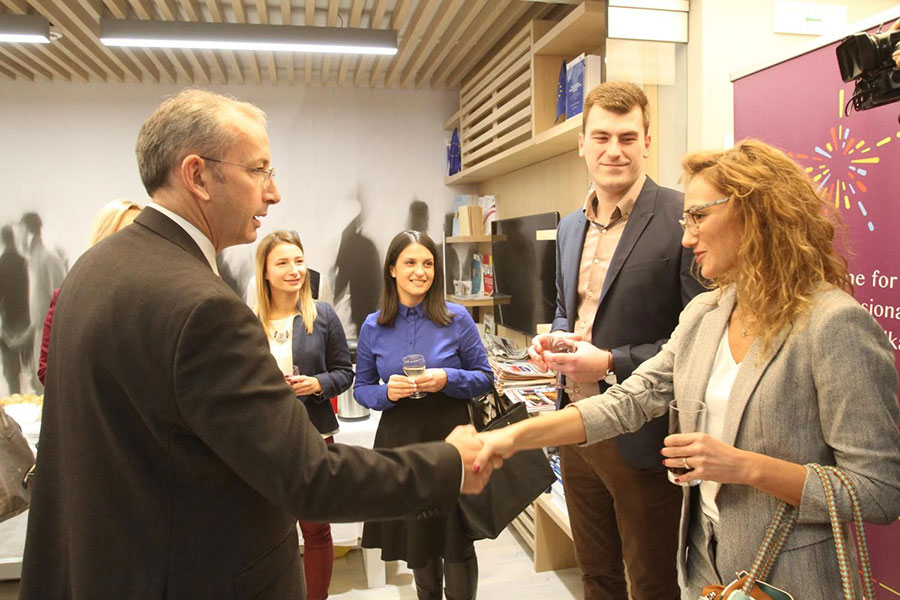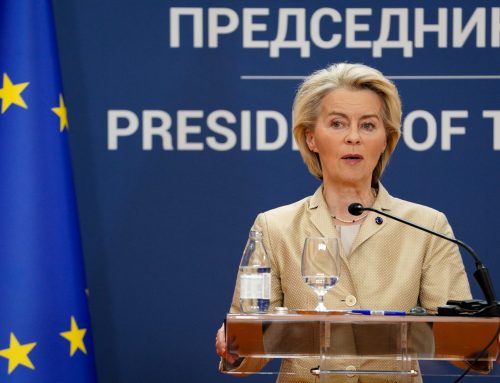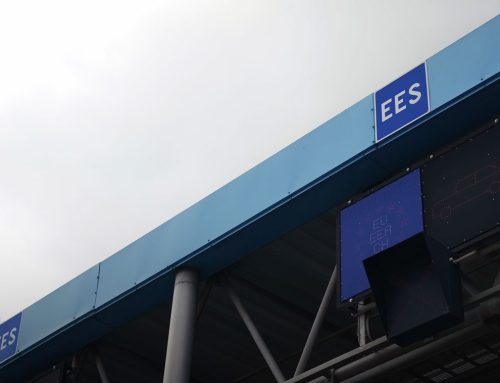Five qualified and highly motivated Serbian civil servants have been selected for a special EU-funded education and exchange programme “EU Scheme for young professionals in the Western Balkans“.
The programme was established I the follow-up to the Summit on the Western Balkans held in Paris which reconfirmed the European perspective of the WB countries. Public administration reform and good governance were once again put at the top of the Union’s accession agenda.
At the event held on this occasion at the EU Info Centre, Head of the EU Delegation to Serbia Michael Davenport said “the Paris Summit made an important decision and start connecting young professionals in the region systematically and I am happy to know that five young people from Serbia will in 2017 attend an exchange programme in an administration of another country in the region.”
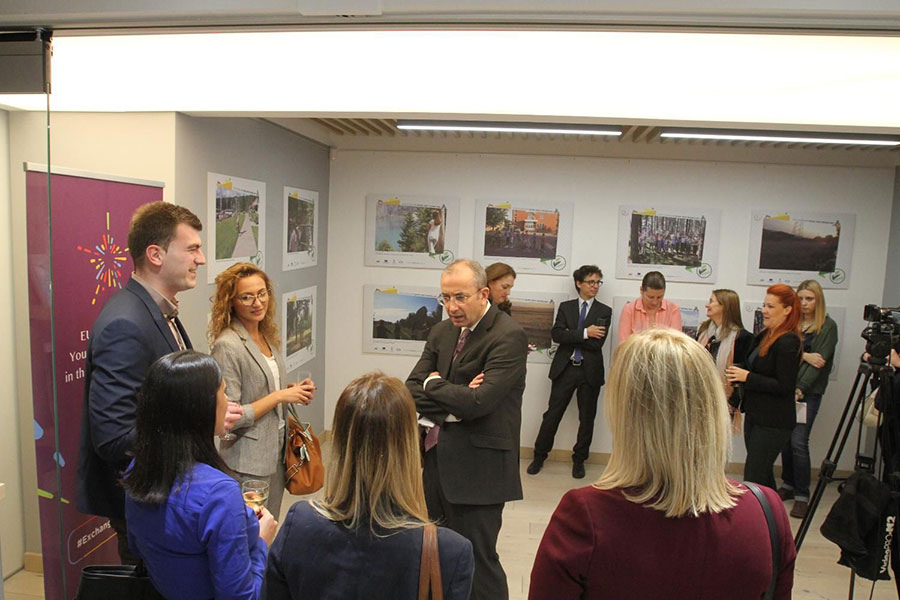
FoNet
British Council Serbia Director Clare Sears said she was happy about the British Council being an implementing partner which, apart from conducting individual trainings, also served as a regional networking centre.
Marija Simic, Miljana Djurcevic and Aleksandar Simic from the European Integration Office as well as Marina Nesic and Marina Lazic from the Ministry of Finance will next week be travelling to Paris to start a three-week intensive training course offered by the School of Public Affairs at Sciences Po, after which they will attain the “Executive certificate in management and public policy”.
The objective of the EU Scheme for Young Professionals in the Western Balkans is to contribute to progress in the accession process and deepen regional cooperation in the Western Balkans by building capacities of the next generation of public administrators and policy-makers. After completing an executive training programme in Paris in October-November, the young professionals will in 2017 attend an exchange programme in an administration of another country in the region.

FoNet
The EU already provides support to the six Western Balkans countries (Albania, Bosnia and Herzegovina, Kosovo*, the former Yugoslav Republic of Macedonia, Montenegro and Serbia) for public administration reform, not only through guidance and political support but also through dedicated pre-accession funds (IPA), institutional cooperation instruments (Twinning, TAIEX and SIGMA) as well as capacity-building (through the Regional School of Public Administration – ReSPA).
In order to further strengthen this process, the European Commission and the Western Balkans governments agreed to implement a one-year pilot Project “EU Scheme for young professionals in the Western Balkans“ which will enable young civil servants to attend an executive training programme after which they will also complete an exchange programme in another country of the region.
The project is funded by the European Commission and implemented by the British Council.
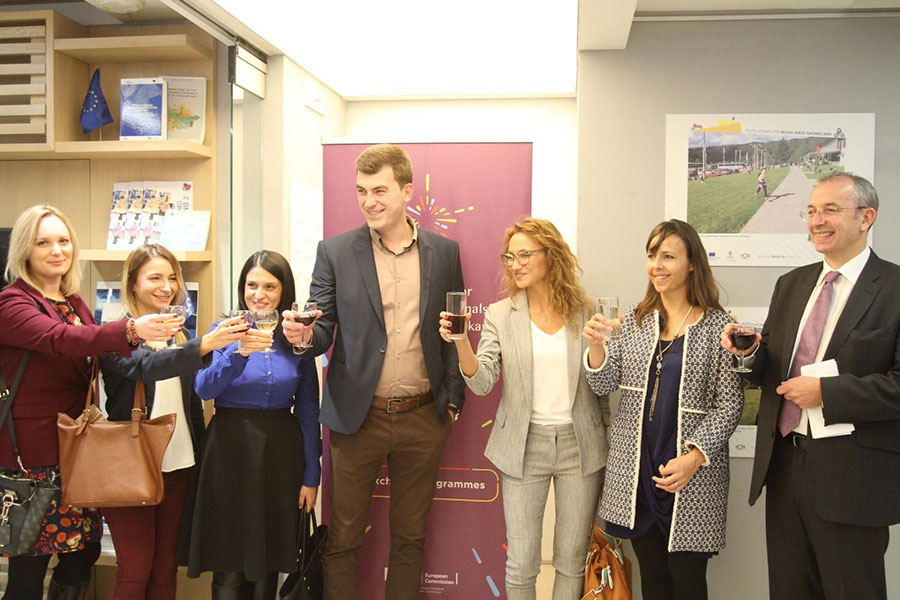
FoNet
This designation is without prejudice to positions on status, and is in line with UNSCR 1244/1999 and the ICJ Opinion on the Kosovo declaration of independence

